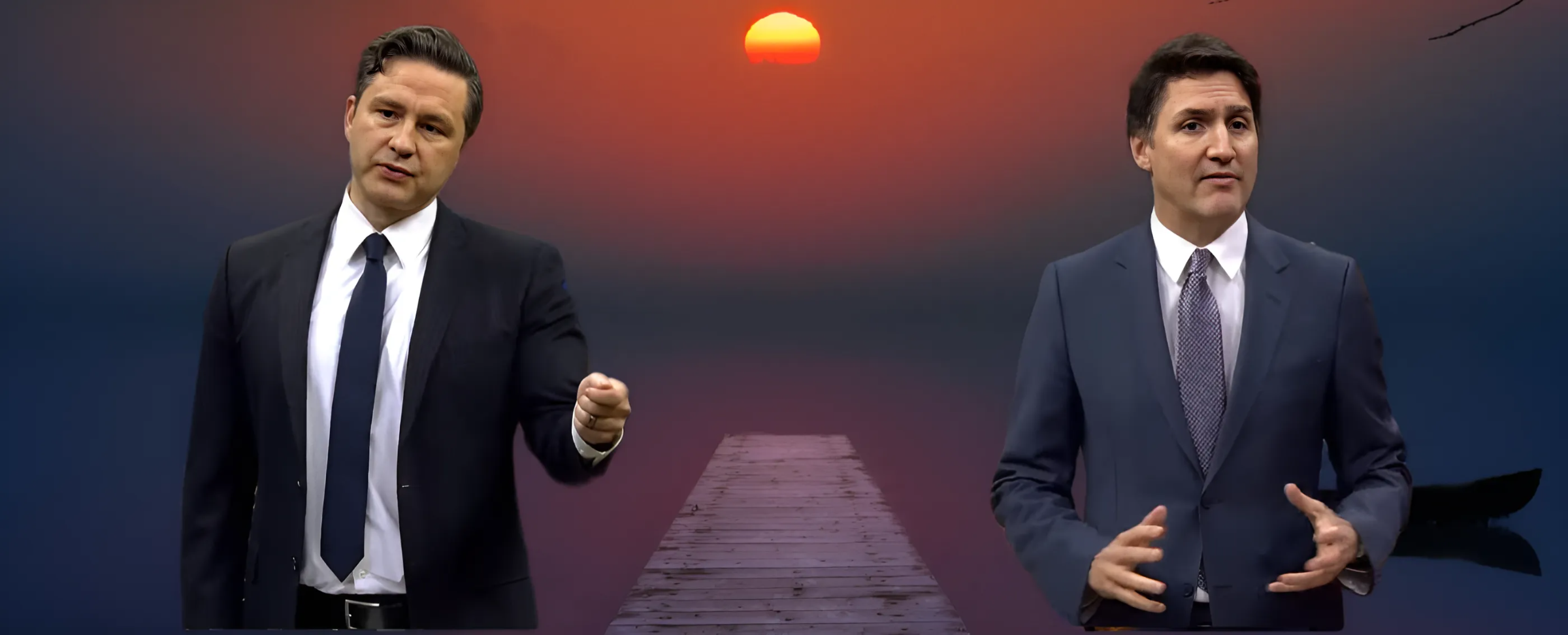Prime Minister Justin Trudeau is facing intensified calls to step down, as a new public opinion survey shows support for his Liberal party has sunk to a historic low and concerns grow over ballooning federal debt and cost of living.
A recently released Angus Reid Institute poll finds the Liberals capturing just 16 percent of decided and leaning voters — a new low in the organization’s tracking and well below the 18.9 percent the party received in 2011 when it fell to third place. The data also shows Conservative support at 45 percent and the NDP at 21 percent.
Trudeau’s personal approval rating has plunged to 22 percent. It is the lowest point of his tenure as prime minister. The survey suggests nearly half (46 percent) of Canadians believe Trudeau should resign and prorogue Parliament to allow for a leadership contest. Among current Liberal supporters, that figure rises to three in five (59 percent).
Mounting caucus pressure
Trudeau’s leadership has come under scrutiny within his party. Several Liberals, including Surrey MP Ken Hardy, have openly voiced concerns that the prime minister is hindering the party’s fortunes. Regional caucuses in Atlantic Canada, Quebec, and Ontario have reportedly reached a consensus urging Trudeau to step aside, while those in British Columbia — where Trudeau is vacationing with his family — appear divided.
“This is a pragmatic question,” said Hardy. “The party is losing ground. He’s become a lightning rod, and we need new leadership to move forward.”
Adding to the political turbulence is heightened concern over the nation’s finances. Over the past decade, the federal debt has surged to unprecedented levels. When Trudeau assumed office in 2015, the country’s debt stood at approximately $616 billion, a figure amassed over nearly two dozen prime ministers and a century and a half of governance. As of Aug. 30, the federal debt had officially more than doubled to $1.232 trillion — a number that some economists say could challenge Canada’s long-term financial stability.
Opposition parties, including the Conservatives, Bloc Québécois, and the NDP, have signaled plans to bring a non-confidence motion when Parliament resumes in late January. In a surprise development, NDP Leader Jagmeet Singh — who bolstered Trudeau’s minority government for years— has pledged to introduce his confidence motion. Singh’s favourability remains mixed; 58 percent of respondents hold an unfavorable view of the NDP leader, matching his highest negative rating in Angus Reid data since becoming party leader.
Conservative Leader Pierre Poilievre’s favourability, meanwhile, sits at 38 per cent — statistically unchanged from earlier in December. Poilievre remains more popular among men than women, according to the survey.
Next steps for Liberals
For Trudeau, three main options loom on the horizon:
- If his government fails to secure support from other parties, an election could be triggered as early as January.
- Two-in-five Canadians surveyed (38 percent) believe he should dissolve Parliament and send Canadians to the polls.
- Resigning and allowing a leadership contest could lead to proroguing the House, buying time for the Liberals to choose a new leader and attempt to rebuild public support.
Despite mounting calls for him to step down, Trudeau has not indicated whether he intends to fight in the next election or relinquish his leadership.
It seems the magnitude of the federal debt, the heightened political polarization, and the social and economic challenges inherited from the Trudeau government will take years to address. We will see what the future holds for us.

